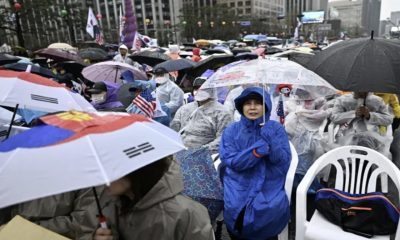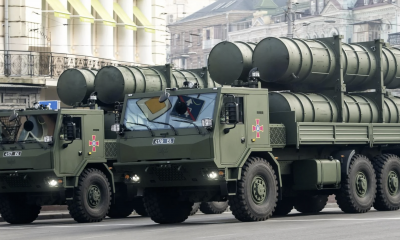Published
3 months agoon
By
Rwaka N
Germany’s political landscape is shifting with the formation of a new coalition government led by the conservative CDU/CSU and the center-left SPD. In their 144-page coalition agreement, the partners unveiled a range of policies that aim to tighten the country’s stance on migration, asylum, and citizenship a marked change from the more liberal approach seen during the 2015 refugee crisis.
The new direction reflects CDU leader Friedrich Merz’s pre-election promises to overhaul migration policy and reduce immigration levels. His party, now the senior coalition partner, emphasized the need to scale back asylum access and enforce stricter border and citizenship controls.
Johann Wadephul, a CDU lawmaker, defended the tougher measures, arguing that Germany’s infrastructure could no longer handle current levels of migration and that the country needs a new, pragmatic approach.
1. Stricter Border Enforcement
Germany plans to continue and expand border checks, especially for those arriving from other EU or Schengen states. While a total border closure isn’t planned, individuals without valid entry documents may be denied entry albeit in coordination with neighboring countries like France and Poland.
2. Acceleration of Deportations
A new “repatriation offensive” aims to speed up the deportation of rejected asylum seekers. This includes expanding detention facilities and empowering federal police to hold individuals likely to evade deportation. Notably, Merz has indicated that Syrians and Afghans will no longer be automatically shielded from removal.
3. Ending Voluntary Resettlement Programs
Germany will end programs that allowed vulnerable individuals including children and those in urgent medical need to be resettled from conflict zones. While local authorities may still evaluate exceptional cases, the overall framework for humanitarian resettlement will be scaled back.
4. Halting Family Reunification for Subsidiary Protection Holders
For the next two years, refugees with subsidiary protection status will be unable to bring family members to Germany, except in special hardship cases. The previous monthly quota of 1,000 family reunification permits will be suspended as part of efforts to curb overall immigration.
5. Expanding the List of ‘Safe’ Countries
The government will broaden its list of countries considered safe for return. Nationals from these countries will face tougher hurdles when applying for asylum, though individual assessments will still be made.
6. Rollback on Fast-Track Naturalization
The previous government’s “turbo naturalization” plan allowing particularly well-integrated immigrants to apply for citizenship after three years will be scrapped. The new minimum residency requirement returns to five years. However, dual citizenship and reduced naturalization waiting periods introduced previously will remain.
The coalition is also considering whether German citizenship can be revoked from dual nationals found to support extremism, terrorism, or antisemitism a move that would apply only to those with another nationality, as making someone stateless is prohibited under German law.
The new measures have sparked significant criticism. Amnesty International labeled the policy shift “an indictment on human rights,” particularly highlighting the suspension of family reunification and the potential deportations to unstable countries like Syria and Afghanistan.
Leaders from the Green and Left parties have condemned the plan as discriminatory and legally questionable. Clara Bünger of the Left warned against treating dual citizens differently, calling it an attack on the principle of equal rights.
In an unexpected twist, even the far-right AfD voiced dissatisfaction not because of the stricter stance, but because they believe the changes don’t go far enough. Ironically, the AfD has seen a surge in popularity since the elections, now topping national polls.
Although the coalition agreement still requires formal approval from party delegates, this step is largely seen as procedural. Once in effect, the new policies are expected to reshape Germany’s approach to migration, asylum, and integration for years to come.
As debates over immigration continue to polarize German politics, the coming months will be a test of how these new laws are implemented and how they are received both domestically and across Europe.


Mass Protests Erupt in South Korea Over President Yoon’s ImpeachmentAFP


EU Representatives Agree on New Driving License Rules


Erdogan Calls Turkey Protests ‘Evil’ as Unrest Escalates


Former U.S. Attorney Jessica Aber Found Dead at 43


UN Reduces Staff Presence in Gaza Due to Security Concerns


US Government’s Security Blunder: Journalist Accidentally Invited to Secret Chat


Ukraine’s New “Long Neptune” Missile Strikes Deep into Russia










